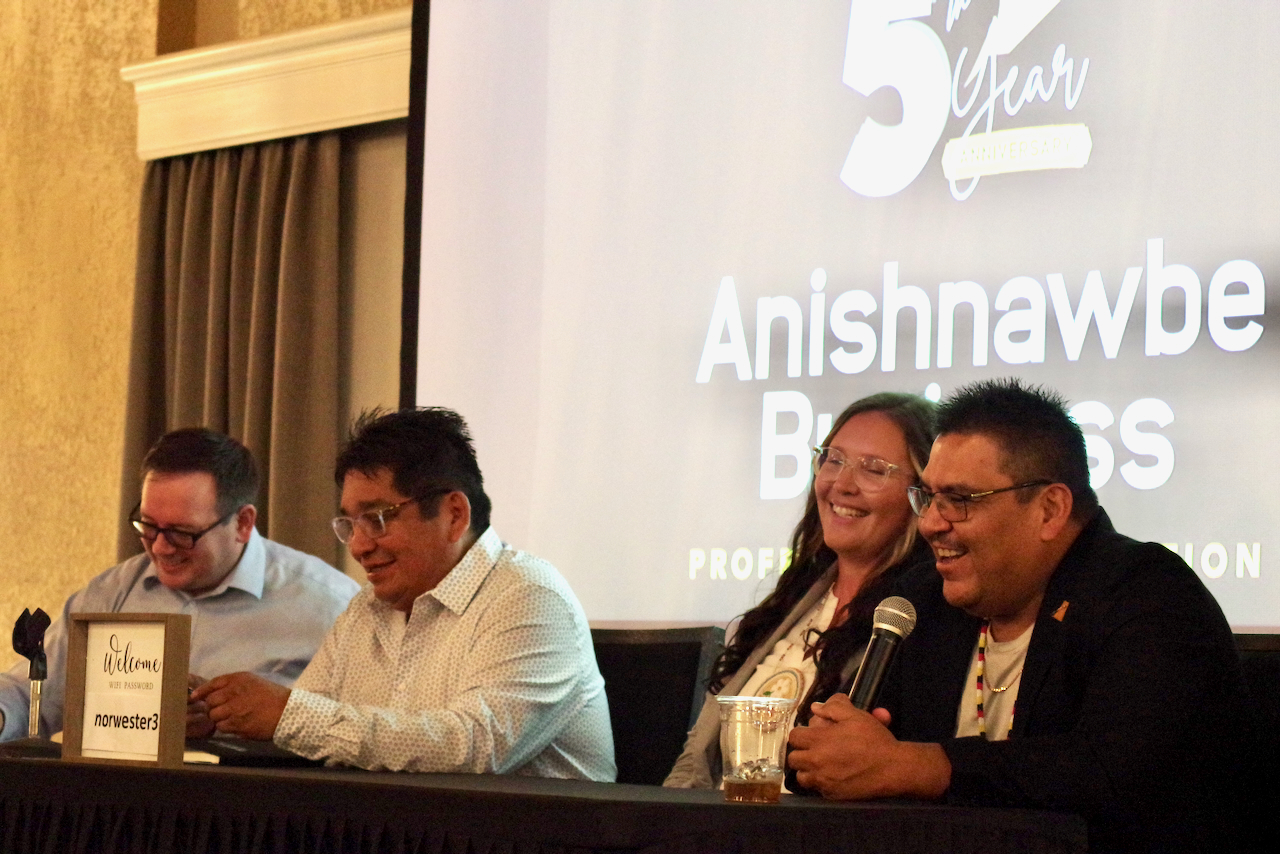Discussing the impact of Indigenous business in Thunder Bay

By Rick Garrick
THUNDER BAY — The Anishnawbe Business Professional Association (ABPA) held a panel discussion on the impact of Indigenous business in Thunder Bay on Oct. 24 at the Best Western Plus NorWester Hotel and Conference Centre in Thunder Bay.
“I’m very proud of what we’ve been able to achieve as an Indigenous business,” says Jason Thompson, owner at Superior Strategies and Red Rock Indian Band citizen. “It’s been a tough journey, I think we’ve all encountered many challenges along the way. I’m very fortunate to be able to work alongside my colleagues to help try to address some of the challenges and barriers we face on a daily basis.”
Thompson says it is important to build relationships, noting that there are years of mistrust and broken promises that happened in the past.
“We have this approach, the three cups of tea approach, we get to know people and build that relationship,” Thompson says. “We may not do business together but at the end of the day we build a friendship and you build that relationship. When that trust is there, I think the opportunities are endless.”
Sarah Levesque, business development and sales manager at Supercom Industries and Fort William First Nation citizen, says they were originally created to maximize the participation of their First Nations partners in the East-West Tie electrical transmission line from Wawa to Thunder Bay and have now shifted their focus to the transportation sector, where they recently completed their first installation of a Spring Drain, or S-Drain, which was patented by TBT Engineering for use on peat boils on railway lines.
“It’s been 10 months in the running, we put a lot of time and effort into working with our partner, which is a class one railway, which is a lot of red tape to get through,” Levesque says, noting they did some smudging and cultural practices before beginning the installation. “A lot of the class one railways are situated in the States, so right now I am trying to break down those barriers for us to be able to sell our product in the States. We’re just breaking barriers, getting us out there and letting them know we are here and we are capable of doing the work, we’re capable and we’re going to be here for a long time coming and keep on running.”
Jonathan Mamakwa, president at TKG Group, says the six ownership communities partnered to take on subcontracts under the Wataynikaneyap electrical transmission line project that was created to connect 17 remote First Nations across northern Ontario to the provincial power grid.
“One of the things that has been important for us is we were able to get our communities to work together, that’s been the biggest thing for us,” Mamakwa says, noting that the word got out that they were working together and supporting one another. “After the project was done, we’re not … hunting business any more, it’s coming to us because they now know what our communities’ capabilities are and what we are able to deliver.”
Jason Rasevych, president at ABPA, says the ABPA was created five years ago to advance the interests of Indigenous businesses in the Treaty #3, Treaty 5, Treaty 9, Robinson Superior Treaty and Robinson Huron Treaty areas in northern Ontario.
“It’s a big milestone for the ABPA, we started five years ago in lunchroom meetings with like-minded First Nation business leaders that wanted to get together and start a network, an organization that would be there to advocate for the position of Indigenous business in northern Ontario,” Rasevych says. “We’re at over 75 members today and working in over 100 First Nations across five treaty areas from Sudbury-Sault Ste. Marie to the Manitoba border to promote the concept of economic development, but we also do it in a way to ensure that it does not conflict with cultural values, human rights and the rights and responsibilities of the communities.”

